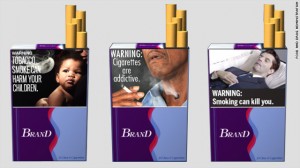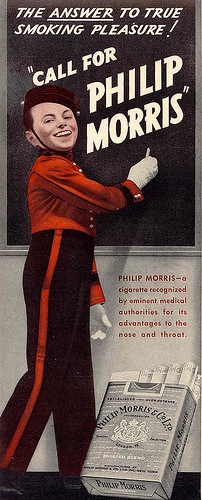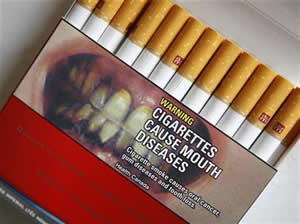 In 2009 the FDA finally acquired the authority to regulate the production and marketing of tobacco. On the marketing front, the tobacco industry fought back with a legal challenge. It claimed the new Congressional law violated the industry’s right to free speech. If cigarette packaging had to feature strong graphic images – one of the provisions of the bill — the industry would required to “stigmatize their own products through their own packaging.”
In 2009 the FDA finally acquired the authority to regulate the production and marketing of tobacco. On the marketing front, the tobacco industry fought back with a legal challenge. It claimed the new Congressional law violated the industry’s right to free speech. If cigarette packaging had to feature strong graphic images – one of the provisions of the bill — the industry would required to “stigmatize their own products through their own packaging.”
The lawsuit is still pending, but the results of new marketing requirements have begun to appear. The question remains: Will they be effective?
Scary labels may be counter-production
Martin Lindstrom, a former ad agency executive and expert on the science of marketing, has used neuroimaging to study what makes people buy. In his bestseller Buyology: Truth and Lies About Why We Buy, he describes a study he conducted on cigarette advertising. He found that especially vivid anti-smoking warnings actually increase a smoker’s craving for cigarettes.
There’s a possible explanation for this in a concept called Terror Management Theory, which includes the idea that a threat to one’s life increases the need for self-esteem. Read more










